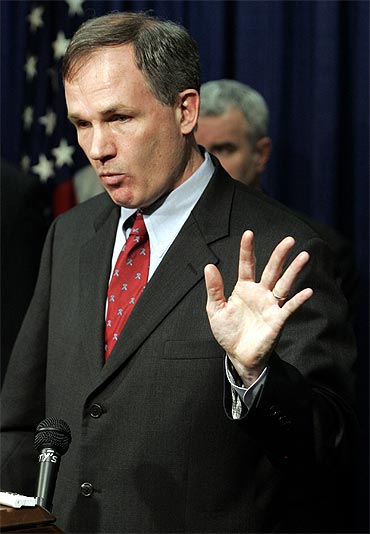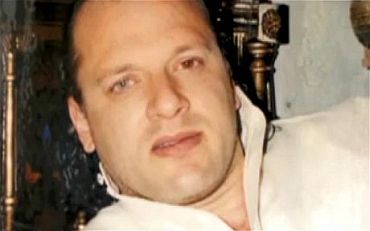Photographs: Frank Polich/Reuters
Justifying a controversial deal with Mumbai terror attacks accused David Headley that spared him from the death penalty and extradition to India, a top United States attorney on Friday said that not making the pact would have been a "terrible mistake".
"I am convinced that we would have made a terrible mistake if we did not sit down with Headley and get all the information that we did," US Attorney Patrick Fitzgerald told reporters after a Chicago court convicted Tahawwur Rana on two terrorism charges based in part on Headley's cooperation with prosecutors.
'Headley had an insider's view'
Image: The Metropolitan Correctional Center, where David Headley and Tahawwur Hussain Rana are being heldPhotographs: Reuters
"Headley had an insider's view of what (Illyas) Kashmiri was up to, what they discussed and what he was planning. He had the insider's view of what Sajid Mir was up to, what Major Iqbal was up to and what people were doing," Fitzgerald said, adding that Headley has so far named 34 different targets that had been surveyed.
When asked how valuable was the information provided by Headley, Fitzgerald said that it was well worth it to take the death penalty off the table and agree not to allow him to be extradited to either India, Pakistan or Denmark to face related charges.
'We need information'
Image: David Headley"We would be crazy, if we sit around and say, you know what, it was all about Headley and all we want to do is put him in jail and sit around and let attacks happen. And one thing we fully appreciate from the law enforcement realm that we are working with our partners in FBI and intelligence organisations," he said.
Fitzgerald added, "We need information the American government, the Indian government needed, the Pakistani government needed the Danish government needs it," he argued.




article